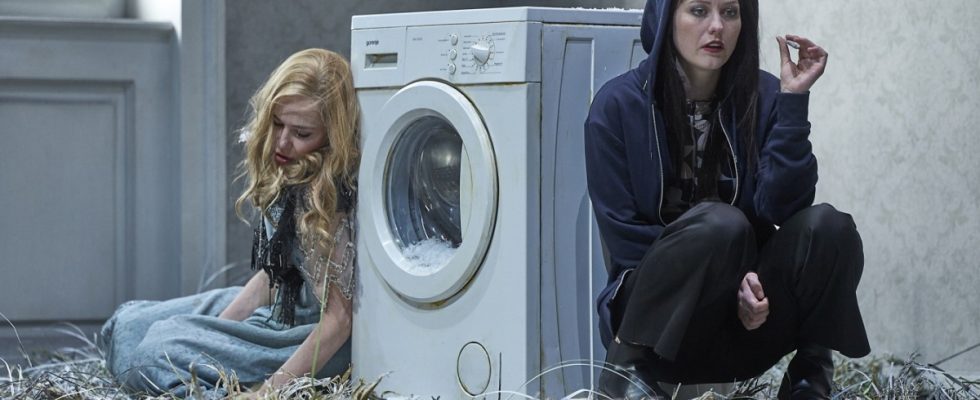When playwright Tena Štivičić moved to London from Zagreb 20 years ago, it was a career challenge. As a foreign-language playwright, you don’t actually have the best cards on the labor market in London. But Štivičić, who now also writes in English, was persistent. And made his breakthrough in 2016 with the family drama “Three Winters”, which premiered at the National Theater.
“Three Winters” was even more successful in Zagreb than in London, where the play spoke to many people’s souls. In the German-speaking area, however, demand has so far been limited. In Germany, the play was performed in Bamberg and Freiburg without attracting much attention; in Austria it has so far only been performed by an amateur theater in Innsbruck. With some delay, “Three Winters” has finally landed on the big German-speaking stage: Martin Kušej staged it in the Burgtheater.
“Three Winters” spans more than 60 years of Croatian history – from the end of the Second World War (Winter 1945) through the collapse of Yugoslavia (Winter 1990) to Croatia’s accession to the EU (Winter 2011). The setting is a house in Zagreb in which four generations of the Kralj family live or have lived: great-grandmother Monika (Sylvie Rohrer) was employed as a maid by the previous owners; In 1945 the house was given to her daughter Ruža (Nina Siewert), who fought as a partisan against the fascists. 45 years later Ruža is buried, the civil war is imminent, and in Aunt Dunja’s (Zeynep Buyraç) bedroom there is already an excess of violence: because she wants to separate, her husband Karlo (Daniel Jesch) brutally beats her up; he will nevertheless make a career as a nationalist politician.
“Three Winters” contains enough material for a long novel
The third level of action is set in 2011 on the eve of a wedding. Lucija (Andrea Wenzl) marries a conservative turbo-capitalist who used money and gentle violence to force the neighbors out of the house and persuaded the bride to be baptized Catholic – to the horror of her father (Norman Hacker), who still mourns the old Yugoslavia . We don’t get to see the bridegroom, but the neighbor (Maximilian Pulst), a man who was traumatized in the Balkan wars, makes an appearance. What Štivičić tells in “Three Winters” is basically the stuff of a long novel. Her play then comes across as a little like a dramatization of a novel in which an attempt is made to accommodate the essential elements of the plot. It’s well built, but also overloaded.
The performance in the Burgtheater begins with video images of battle tanks and the insert “Winter 2023”. So Kušej stretches the arc of the play further to the immediate present and the war in Ukraine; and unlike in the original play, the Yugoslavian war also takes place on stage here, in a short scene. Other than that, it purrs well-made play supple, but without major peaks. The walls of Annette Murschetz’ stage are grey, the floor is covered with shards of glass, and in the semi-darkness a huge black sphere can be seen in the background. The bullet could crush everything under it, but hopefully we have a few more winters before then.

